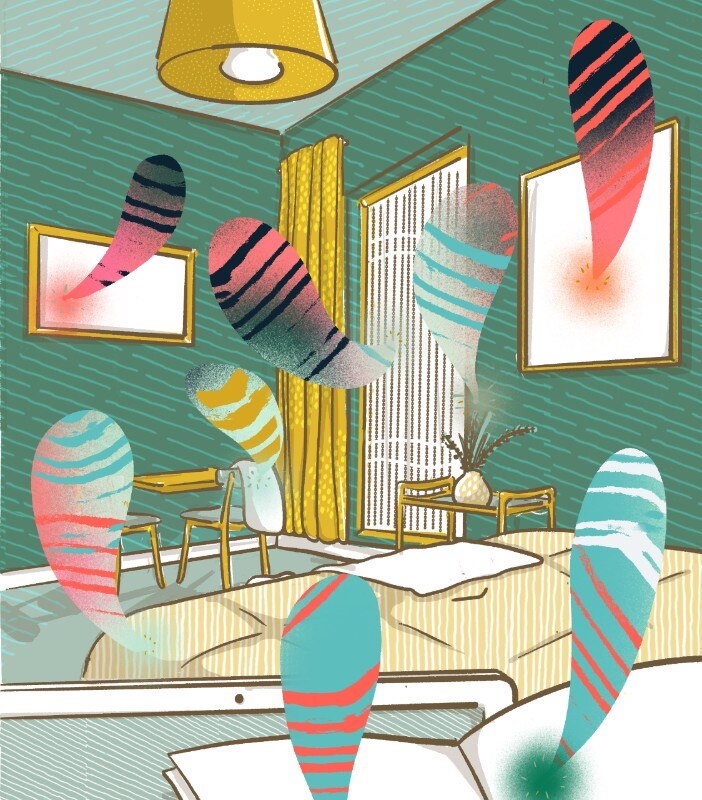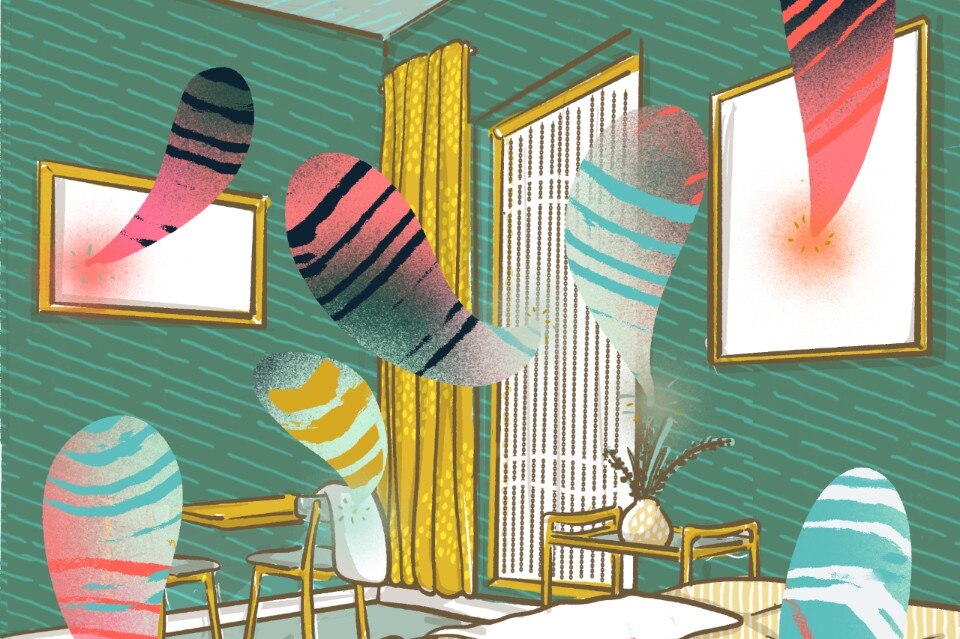This article was originally published on Domus 1068, May 2022.
For many years, the house I grew up in was the place where I felt most exposed to danger. I’m not sure how conscious I was of this at the time, but it’s a fact that I hardly ever took my shoes off, always ready to escape. If any tension at home had escalated, I’d have been off like a shot. This is why, for a long time, hotels were the places where I felt safest. The fact that there was a filter at the entrance, someone keeping an eye on the keys and handling the phone calls, was sufficient to let me sleep soundly at night. I knew that once past the reception desk, I was entering an embassy of peace.
For this reason, more than luxury hotels, I’ve always loved modest pensions and small provincial hotels. The simplified architecture of the buildings – more often the work of surveyors than of architects – and even the anonymous, vaguely homely, recycled furniture, gives me great comfort. You can’t live without a home. It’s a matter of health for the body and soul. For me, pensions and small hotels have always been surrogate homes. The decency without ostentation, the non-promotional cleaning, or even a recycled light bulb and the electric fan sitting on the table: all this always made me think there were people taking care of me, albeit with their limits as human beings.
I was looking partly, I think, for surrogate parents, too. I ended up choosing a small hotel in the Vicenza hills purely by chance. The acceptance of an invitation, a small literary do organised with few means but great care, and then this two-storey building, which sat solid and squat-looking in the middle of the landscape.
Seven hours on the train and then I’d be there, isolated in the middle of the landscape, and Giglia would say, “Andrea, your number 8 is ready.”
One descended two steps to reach the entrance, with its carpet and a sofa in the corner, and a mysterious globe as incongruous as it was imaginative. Then, behind the counter, there was Giglia, the owner, who handed keys to strangers, while everyone else – the habitués – slipped in behind the desk and pulled their large-knobbed keys off the hooks by themselves, whether she was there or not, and went to their rooms to watch TV.
In that hotel, frequented mostly by workers sent to oversee the area’s building sites, I occupied Room 8 for years. It was a room on the first floor, first on the right at the top of the stairs. A single bed against the wall next to the door, a windowless bathroom with an extractor fan, a minimal veneered wardrobe, and a small table against the wall on which I wrote occasional texts, polishing them off in stays that were never longer than a week. The window led directly onto a small terrace with a concrete floor that looked down the valley to Vicenza, which you could just make out if there was no mist. If there was, you had to imagine it. A radio mast – Radio Maria’s if I remember correctly – towered a few hundred metres away.

Why did I choose this place to write my short pieces? They were basically commissions, articles, reviews, brief essays, stories for one of those many anthologies that no one would ever read. I could have written them anywhere: in the library, at home, in a bar even. Yet I would make a sort of voyage there from Turin, two trains to Vicenza, then a car ride to the hotel, where the organisers of that first festival, who had since become friends, would drop me off and go home. Seven hours on the train and then I’d be there, isolated in the middle of the landscape, and Giglia would say, “Andrea, your number 8 is ready.” I used to go up to the first floor and transfer my clothes from suitcase to wardrobe, and then start writing. I would occasionally go out for a walk, and in the evening I would go down to the restaurant for dinner.
I believe those words – “Andrea, your number 8 is ready” – were reason enough to make that voyage, much more than the writing, which came easily to me but, at the same time, was unmemorable. The bed, on the other hand, was small for my almost 1.90-metre frame. I was no longer used to those dimensions. It was like sleeping on a ledge, and to turn over was to risk tumbling to the floor. Moreover, my mobile had no reception and, if memory serves, there were no phones in the rooms, or in Room 8 it didn’t work. The fact is that if my wife called, Giglia used to come and knock on the door and hand me a cordless that I would take into the room and then return to her.
I used to make that long journey because Giglia thought there was only one place where I could write, and that place was Room 8.
I used to make that long journey because Giglia thought there was only one place where I could write, and that place was Room 8. She used to get it ready well in advance and made sure there was a sun umbrella on the terrace, if spring had arrived outside in the meantime. At the counter, she was often bent over novels that she used to tell me about. She would occasionally disappear down to the kitchen to help her nephew. At night I could glimpse the flickering of the TV from the breakfast room, where Giglia would be in her armchair watching the news. I would reread what I’d written during the day, slip into my child-sized bed and turn off the light.
On Fridays the hotel emptied, the workers went home, the rooms were cleaned, and the doors were left open with the keys in the locks. On Sundays I used to go down at lunchtime and sometimes I would eat with Giglia at the only laid table. Then we would sit outside and talk with the hills and the Radio Maria mast in front of us. When I left, I knew that in the years to come she would look for those moments – or that place – in my books to be. But those moments remain there, in the middle of the landscape, and they’re the most beautiful novel I’ve never written.


